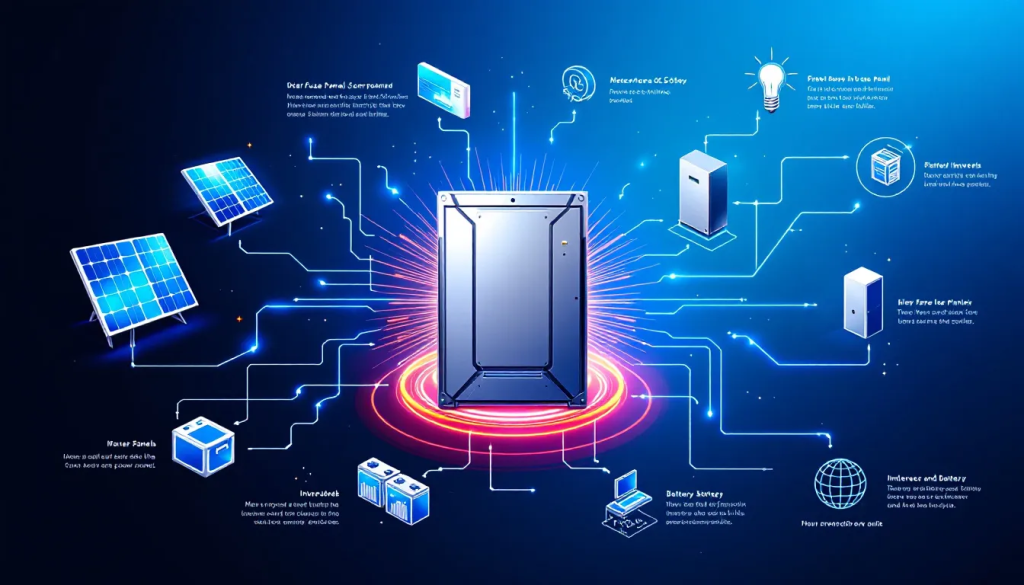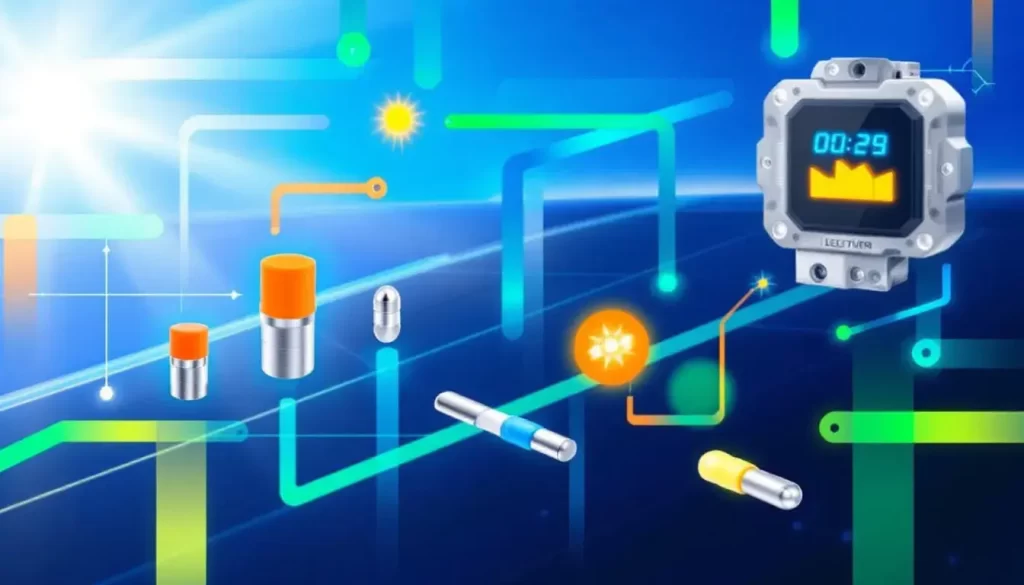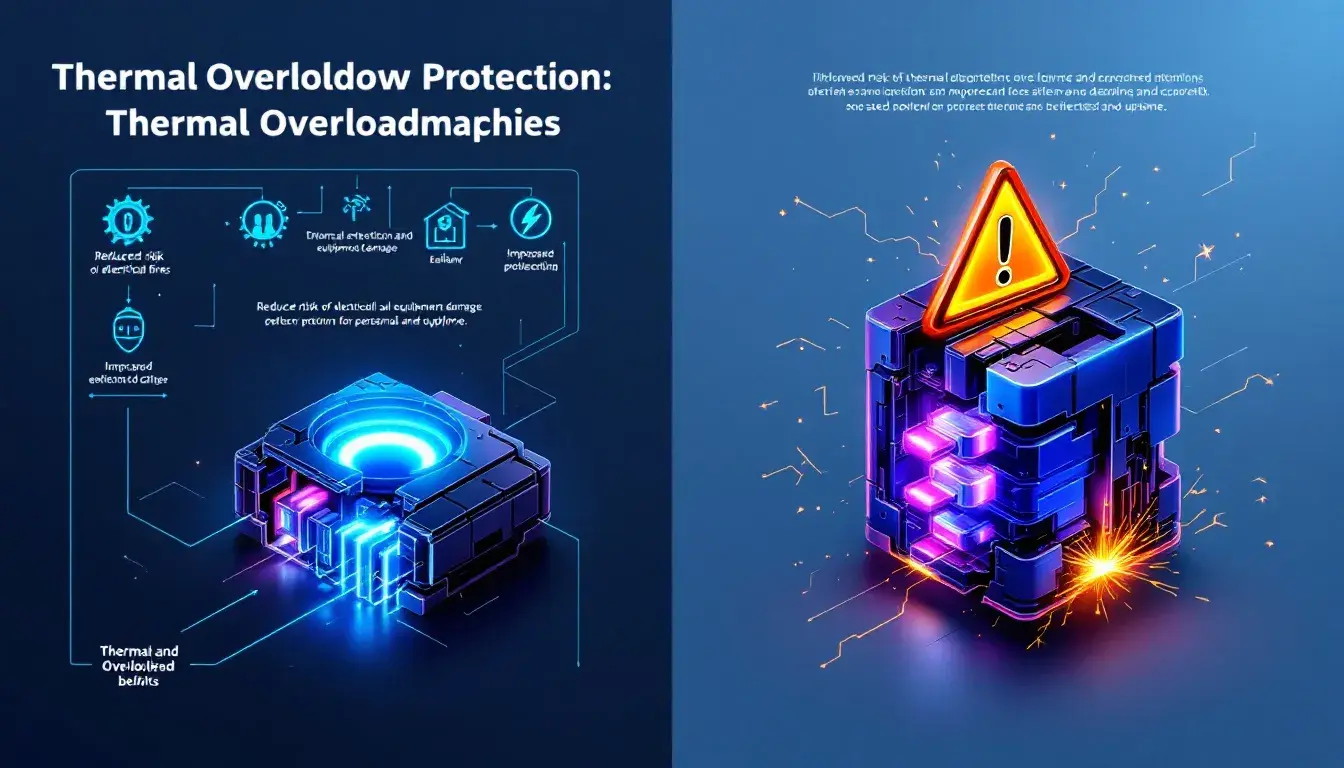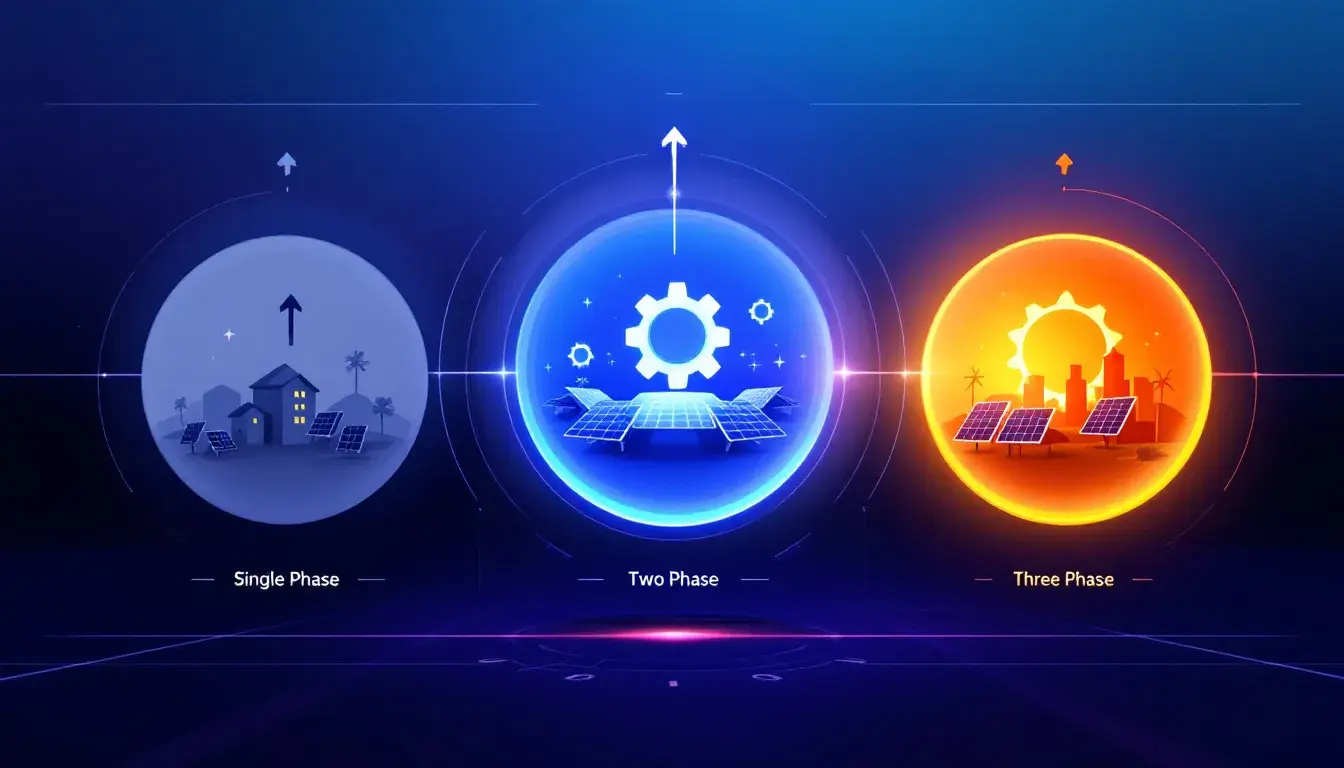Fuse For Solar Energy System
Table of Contents
ToggleEnsuring your solar system is safe and efficient starts with a key component: the DC fuse box solar. This article explains the role of the DC fuse box solar in protecting your solar setup from electrical hazards. You will learn how to select the right fuse, install it correctly, and maintain it to keep your system running smoothly.
Key Takeaways
- DC fuse boxes are essential for protecting solar PV systems from excessive current and short circuits, ensuring safety and longevity.
- Selecting the appropriate fuse type and rating based on component specifications, current ratings, and environmental factors is critical for maintaining system integrity.
- Regular maintenance and inspections of DC fuses enhance safety, prevent unexpected failures, and extend the lifespan of solar electrical components.
Understanding DC Fuse Boxes for Solar Systems

DC Fuse Boxes: Essential for Solar PV System Safety
- Purpose: DC fuse boxes are crucial for protecting your solar PV system. They prevent excessive current and short circuits, which can cause damage and potential fires.
- Function: Fuses and circuit breakers safeguard your system’s wiring and devices from overheating, ensuring the safety and longevity of your investment.
- Components:
- DC Fuse Block: Essential for maintaining system integrity.
- Fuse Holder: Important for securing the fuses in place.
- Types of Fuses:
- ANL Fuses: Suitable for larger units due to their higher current capacity.
- Blade Fuses: Ideal for smaller loads.
- Safety Protocols:
- Strict safety guidelines are necessary to prevent electrical hazards.
- Choose fuses based on battery type to avoid faults, as different batteries may react differently.
- Maintenance:
- Regular inspections for damage or corrosion are crucial.
- Timely replacements ensure fuses function properly, preventing unexpected failures.
- Importance:
- Maintaining your DC fuse box is vital for protecting against overcurrent situations.
- This proactive approach enhances the safety of your solar PV system, extending the lifespan of your electrical components and battery bank.
Next Steps: Understanding the role of DC fuse boxes is the first step. In the following section, we’ll explore how to select the right fuse for your solar panel array, equipping you to make informed decisions and keep your system running smoothly.
Selecting the Right Fuse for Your Solar Panel Array

Choosing the Right Fuse for Your Solar Panel Array
Key Considerations for Fuse Selection
- Short Circuit Current
- Know the short circuit current of your solar panel array to determine the maximum overcurrent the fuse should handle safely.
- Voltage Rating
- Ensure the fuse’s voltage rating matches or exceeds your circuit voltage to prevent equipment damage.
- Common solar fuse voltage ratings include 1.5 kV, 1 kV, and 600 V.
- Temperature Derating
- Fuses are typically derated by 25% at room temperature to ensure reliability.
- Example: Derate the current rating by 25% at 25°C to maintain safety and performance.
- Consider manufacturer guidelines and ambient temperature for the appropriate fuse size.
Example Calculation
- For a 200W solar panel operating at 12V, which generates approximately 16.7A, a 25A fuse is recommended for protection.
- The fuse amperage should be within the middle range of the maximum and minimum ratings for optimal protection and efficiency.
Summary
Mastering DC fuse box solar safety is crucial for protecting your solar PV system from excessive current and short circuits. By selecting the appropriate fuse type based on component specifications and following strict safety protocols, you ensure the longevity and security of your solar installation.
Regular maintenance and proper fuse selection, considering current ratings, voltage ratings, and temperature derating, are vital for optimal performance. Safety and efficiency go hand in hand.
Use this guide to confidently safeguard your solar investment, ensuring it operates safely and efficiently for years to come, protected against electrical hazards.
Tel: +86-577-88671000
E-mail: ceo@tosun.com
Skype: tosunelectric
Wechat: +86-139 6881 9286
WhatsApp: +86-139 0587 7291
Address: Room No.1001 Wenzhou Fortune Center,Station Road, Wenzhou, China
REQUEST A QUOTE
WhatsApp us
 : +86-139 0587 7291
: +86-139 0587 7291 English
English Español
Español Русский
Русский Français
Français العربية
العربية Português do Brasil
Português do Brasil Українська
Українська Türkçe
Türkçe Polski
Polski Nederlands
Nederlands Italiano
Italiano Bahasa Indonesia
Bahasa Indonesia हिन्दी
हिन्दी اردو
اردو አማርኛ
አማርኛ Հայերեն
Հայերեն ไทย
ไทย Монгол
Монгол فارسی
فارسی Shqip
Shqip Ελληνικά
Ελληνικά


